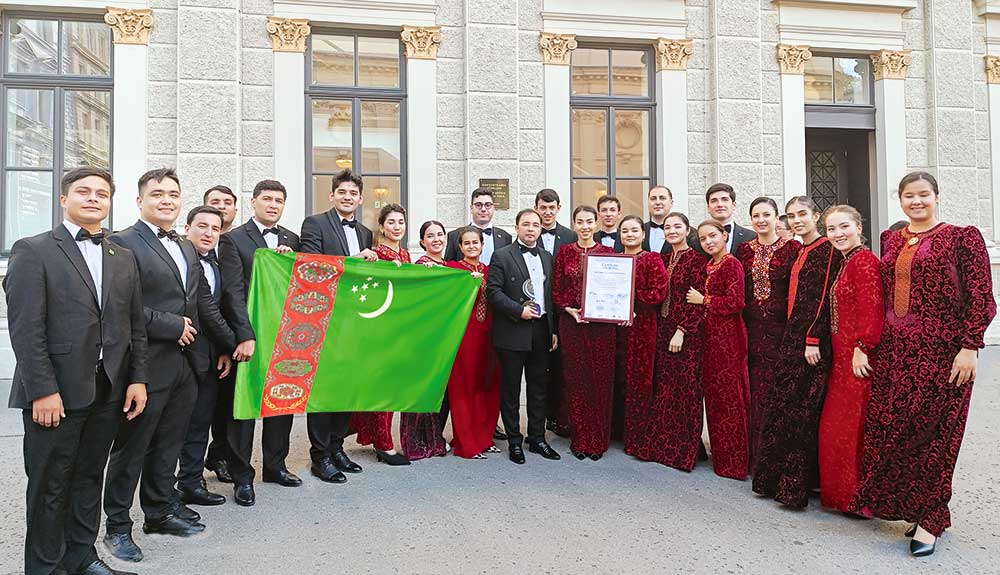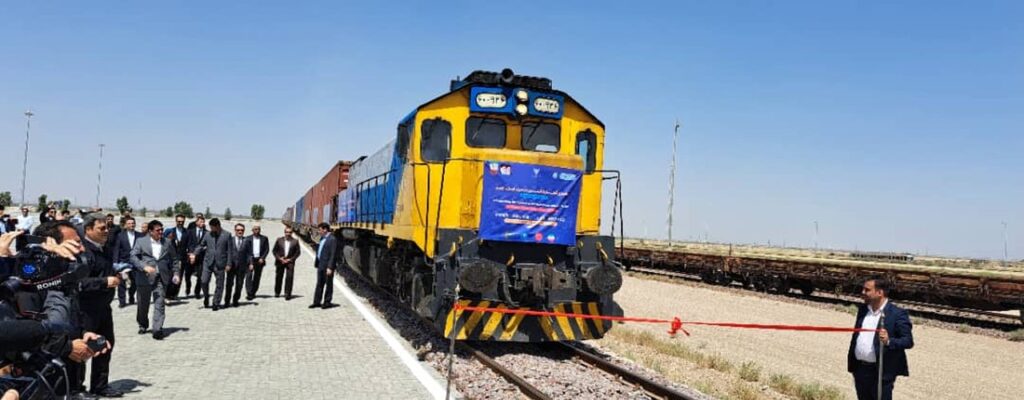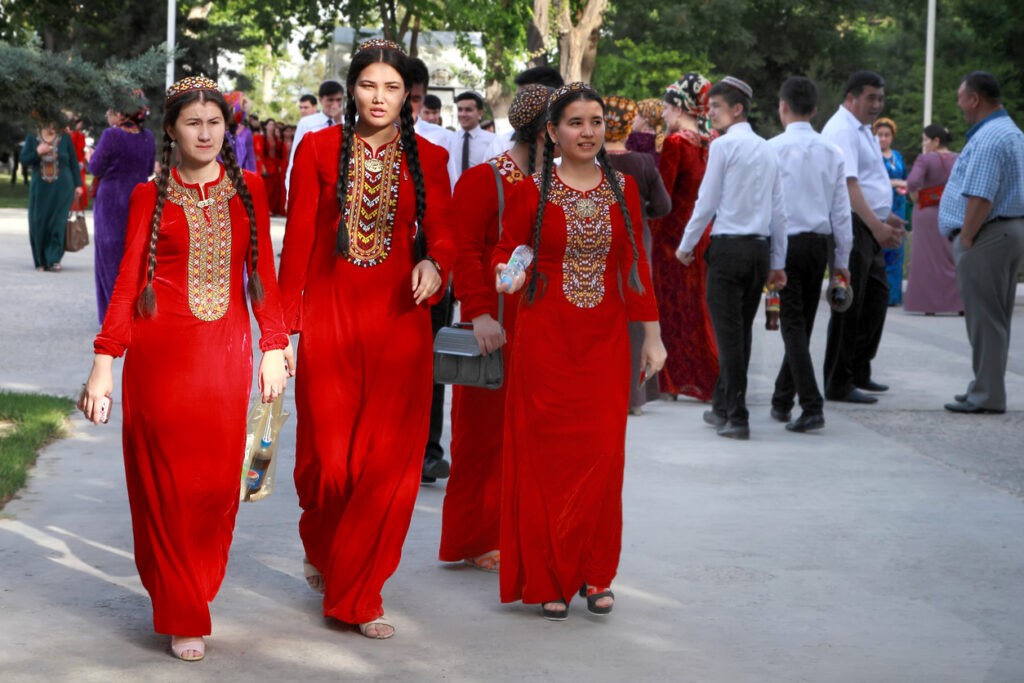Viewing results 1 - 6 of 759
Turkmen musicians have participated for the first time in the X World Festival of Orchestras, “One Future,” which was held from July 25 to 28 in Vienna. Therein, they secured the Gold Prize in the Chamber Orchestra category. The Youth Chamber Orchestra, directed by Rasul Klychev, captivated the audience and jury with its masterful performance of Turkmen melodies and classic foreign pieces. At the festival's closing ceremony, held in the famous Golden Hall of the Vienna Philharmonic, the Turkmen musicians received the jury's highest score — forty points. British conductor Toby Purcer, head of the festival's creative committee, stated that he highly appreciated the orchestra's performance and hoped to organize joint concerts in Turkmenistan in the future.
KTZ Express, a subsidiary of Kazakhstan’s national railways company Kazakhstan Temir Zholy (KTZ), and China Railway Container Transport Co. Ltd. have resumed the operation of container trains on the Iran-Turkmenistan-Kazakhstan-China route. As reported by KTZ’s press service, representatives of Iran, China, Kazakhstan, and Turkmenistan attended a ceremony on July 21 at Iran's Aprin station to mark the departure of a container train to China. The train, consisting of 50 forty-foot containers, will arrive in China within 12 days. This shipment marks the restoration of the transport corridor, strengthening trade relations between participating countries.
On July 25, Kyrgyzstan hosted the 6th meeting of the Kyrgyz-Turkmen intergovernmental commission on trade, economic, scientific, technical, and humanitarian cooperation, chaired by Kyrgyzstan’s Deputy Chairman of the Cabinet of Ministers—Bakyt Torobaev, Minister of Water Resources, Agriculture and Processing Industry, and Annageldi Saparov, Minister of Energy of Turkmenistan. The parties noted the sevenfold increase in trade turnover between Kyrgyzstan and Turkmenistan over the past four years and discussed means for further improvement. In 2023, bilateral trade totalled $64 million. Torobaev proposed opening a joint bonded zone in Turkmenistan to develop trade infrastructure and postal operations in e-commerce. He also noted that providing preferential tariffs for Kyrgyz cargo trucks through Turkmenistan's territory and simplifying the visa procedure for Kyrgyz drivers will significantly expand bilateral trade exchange. Due to their geographical locations, the parties emphasized that Kyrgyzstan and Turkmenistan have significant potential in the transport and logistics sector. In particular, the planned launch of a transport corridor from China through Kyrgyzstan and Uzbekistan to Turkmenistan, utilizing the Turkmenbashi seaport, will provide access to the Caspian Sea and the Russian Federation, opening up new economic opportunities for both countries. The meeting addressed the need to continue working on creating a Kyrgyz-Turkmen Development Fund as a mechanism for uniting the two countries' business sectors and stimulating the creation of joint ventures. The parties also discussed a project to build a Turkmen resort in Cholpon-Ata at Lake Issyk-Kul. The Kyrgyz government’s press service stated that the parties signed documents on Kyrgyzstan's import of Turkmen electricity in 2025 but did not disclose details.
On July 20, government representatives from Kazakhstan, Turkmenistan, and Afghanistan gathered in Aktau, Kazakhstan, to discuss the construction of a new railway line running from the Turkmenistan border through Afghanistan to Pakistan via Turgundi—Herat—Kandahar—Spin Buldak, The joint implementation of the project was proposed by head of the Agency for Transport and Communications of Turkmenistan, Mammetkhan Chakyev, who also announced that Turkmenistan and the Afghan side had already agreed to create a logistics centre in Turgundi, a border town in northern Herat Province of Afghanistan. Construction is due to commence shortly and once in operation, will provide facilities for the transhipment of grain, rail containers, and other cargo. Kazakhstan's invitation to participate in the project rests on its production of high-quality railway tracks and as stated by Chakyev, “Turgundi-Herat is not only the construction of a railway but also the further development of freight traffic and the attraction of goods in this direction. With the participation of the Kazakh side, we can significantly increase the attractiveness of this corridor." Afghan representatives stating their readiness to forward the transport of goods from Kazakhstan and Turkmenistan to Pakistan, highlighted the effectiveness of the route for all concerned as well as the benefits it afforded to importing Chinese goods through Kazakhstan and Turkmenistan. Kazakhstan’s Deputy Prime Minister Serik Zhumangarin announced his support for Turkmenistan's proposal for the joint construction of the new railway route and its provision of a western corridor from Afghanistan to Pakistan and India.
The capital of Turkmenistan is hosting a two-day seminar , organized by the OSCE Centre in Ashgabat, on "Artificial Intelligence and its Impact on Freedom of Speech." During the event, international participants, including specialists from Austria and Bulgaria, will analyse the impact of artificial intelligence (AI) technologies on freedom of speech and the role of the media in today's world through various workshops focusing on: the role of artificial intelligence in shaping public opinion and disseminating information; the risks and opportunities associated with the application of AI in the media; how to ensure freedom of speech in the context of AI development; and how to combat misinformation and manipulation in the age of artificial intelligence. Opening the seminar, William Leaf, Representative of the OSCE Centre in Turkmenistan, emphasized the importance of freedom of speech and media as integral elements of a democratic society. Noting Turkmenistan's growing interest in developing artificial intelligence, he welcomed the seminar as an important step in understanding its potential and possible challenges. Within the context of an exchange of views and the development of recommendations on the use of artificial intelligence in the media, the event provides a platform for discussions on how such issues affect the principles of freedom of speech and human rights and as such, relates to the OSCE Centre's ongoing assistance in implementing the National Human Rights Action Plan 2021-2025 (NHRAP) provisions on media freedom and freedom of expression.
Turkmenistan citizens graduating from foreign universities, are currently required to undergo a complex process to have their diplomas recognized in their home country. A source in the Main Department of Education of Lebap told Radio Azatlyk that Turkmenistan citizens graduating from pedagogical universities in CIS countries are obliged to enrol in a month-long advanced training course at the Pedagogical Institute in Turkmenabad to nostrify (recognize university qualifications) their diplomas and moreover, provide 17 references. According to graduates, the process also involves the extortion of bribes. Hakberdi, a Russian language teacher from Turkmenabad who underwent the diploma recognition process about five years ago, explained that the size of the bribe depends on the influential status of whoever is engaged to help. "From 2018 to 2019, the bribe could reach 10-15 thousand dollars. If you have an acquaintance in the ministry, the bribe will be smaller, but can rise if intermediaries are involved." In addition, when attempting to get their diplomas recognized, graduates can fall prey to fraudsters who promising help, take their money and disappear. In parallel with the season of diploma nostrification, the process of submitting documents and sitting exams for admission to foreign universities continues. Exams are taken online and because of internet issues, this can create new problems. "Since the speed of the Wi-Fi signal at home is inadequate," reported a resident of Dianev, "applicants from across the districts gather at the Turkmentelecom internet cafe in Turkmenabad but there are not enough computers and often queues from 6 a.m."






